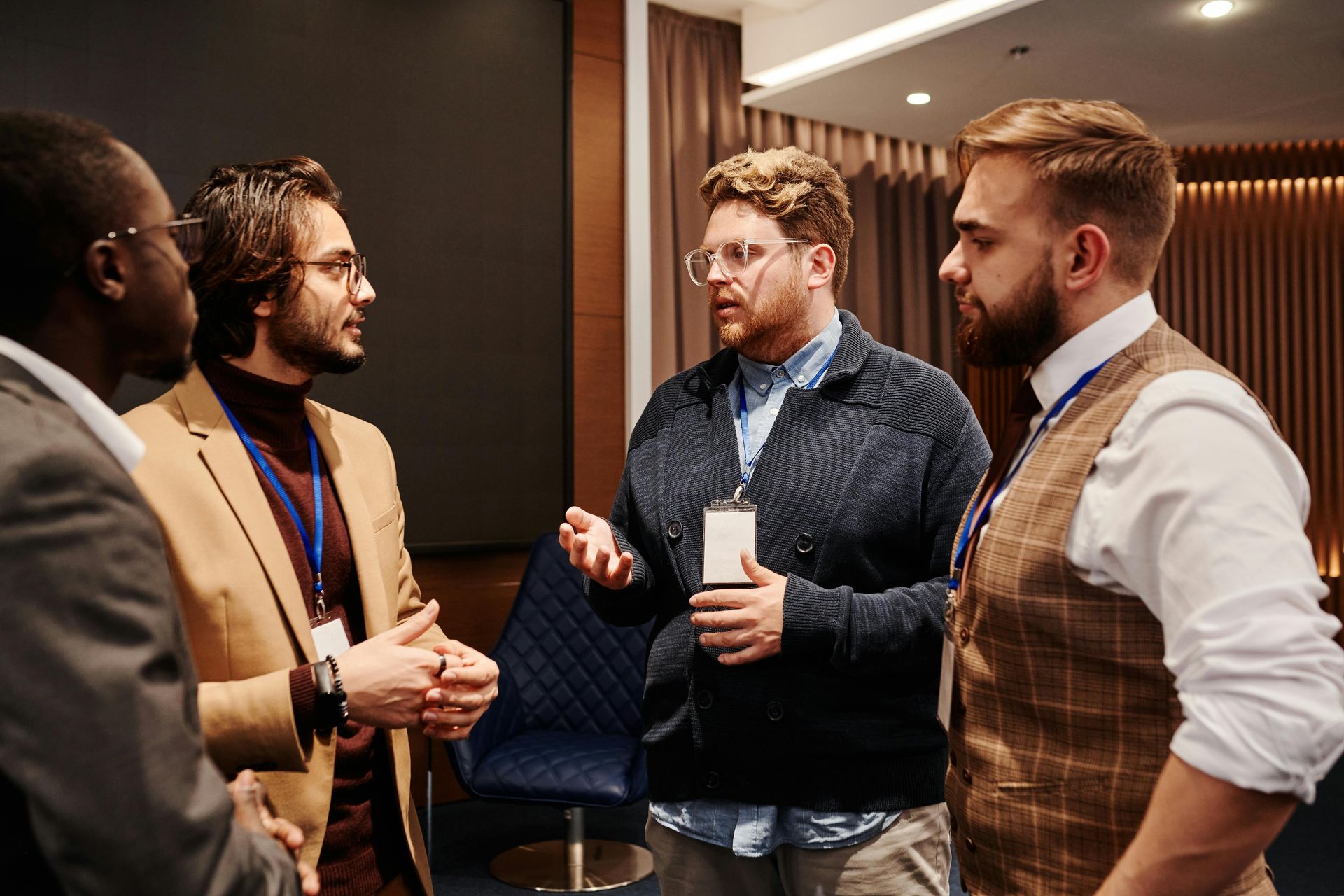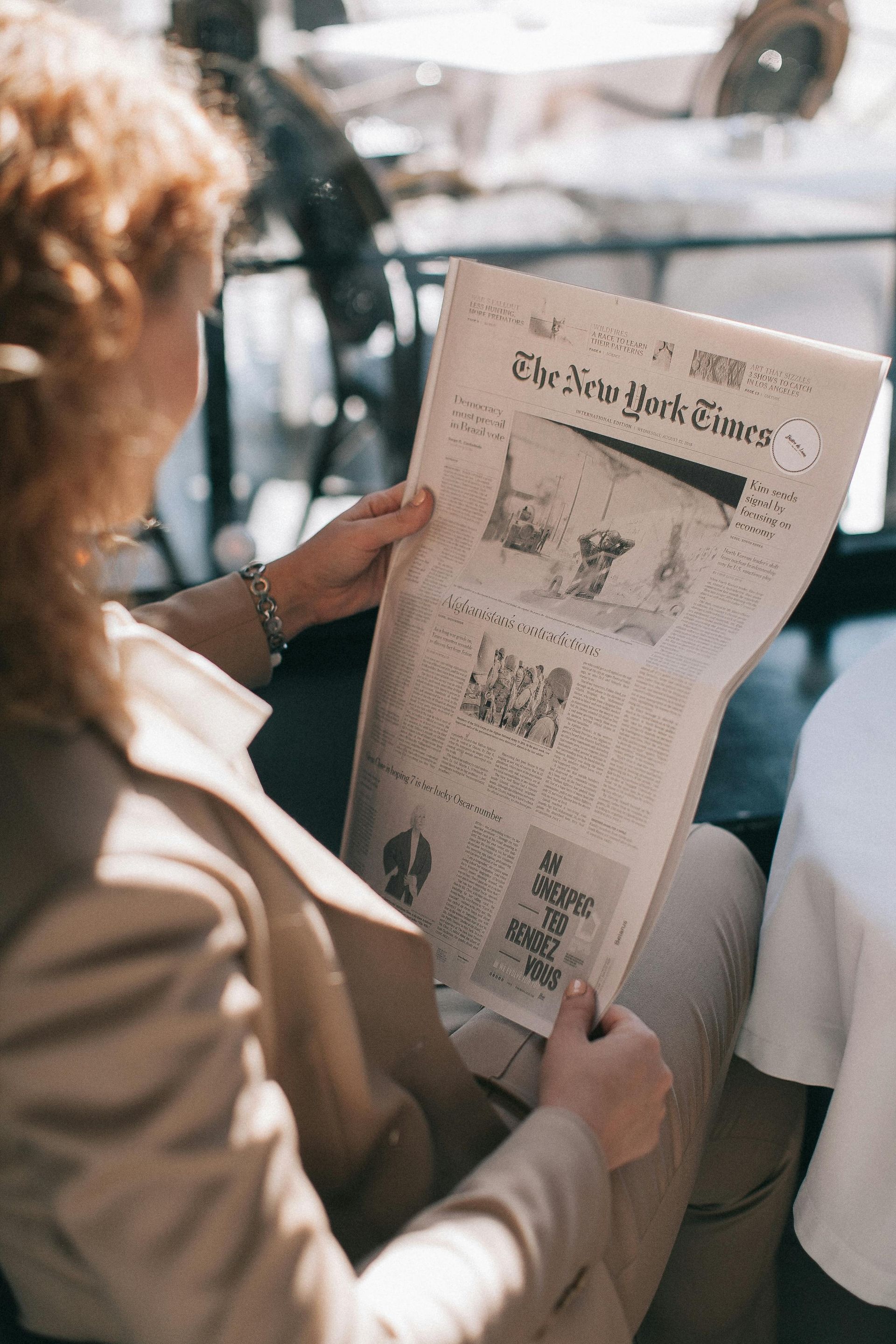Contact Us
Phone:
Email:
Location:
1234 Street Name, City, State 12345
Hours:
Mon - Fri 8am to 4pm
An Honest Diversity Statement
Three generations of ‘college for all’ in the U.S. has left most families looking for alternatives.

By James Hankins
Law and Liberty
January 18, 2024
For a number of years now pleasant young women (or persons identifying as women, or with female-sounding names) have been contacting me from the university’s diversity office, inviting me to attend sessions to discuss our DEI policies. Harvard has to be different, so we use the acronym EDIB, for Equity, Diversity, Inclusion, and Belonging (our previous president Drew Faust, as her contribution to the collective wisdom, added the “Belonging”). These sessions are never described as compulsory, but the pleasant young women don’t take “no” for an answer. In former times, I was able to avoid these sessions by pleading that I had a subsequent engagement. During the pandemic, however, there was no escape. There was no obvious way to evade a Zoom EDIB “training” session that one could take at one’s leisure. So I took the “training.” I was afraid that the interactive videos would demand that I agree with the policies, in which case I would not be able to check the appropriate boxes, with what tedious and time-consuming consequences I knew not. But fortunately, that didn’t happen. Professors, then, were still exempt from taking loyalty oaths.
Recently, however, volcanic activity has broken out further down Olympus, reportedly arising from the graduate students, who want to step up the pressure on us. They ask why, if they have to write diversity statements, shouldn’t we senior professors be subjected to the same requirements? (Let’s smoke out those white supremacists!) In past times I would have been confident that Olympus could easily withstand attack from any and all inferior cults. Now I’m not so sure. I thought maybe I should get a statement ready, just in case.
I consulted AI, asking it to compose a 500-word statement that would, following the usual format, explain “my thinking about diversity, equity, and inclusion; the efforts I have taken to promote these values; and the steps I hope to take in the future to spread them.” Under the first rubric, AI offered the following:
In the ever-evolving landscape of education, I firmly believe that the cornerstones of excellence are diversity, equity, and inclusion. These principles are not just theoretical concepts but essential ingredients in the creation of a vibrant and effective learning environment. As an educator in [Your College], I am committed to fostering these values in my teaching, research, and service.
Well, that was easy (it took less than 30 seconds to generate the required 500 words), but the suggested language had some drawbacks. It would be embarrassing to put my name to such drivel, but more to the point, I didn’t believe a word of it—at least if the usual meanings were attached to the cult terms “diversity, equity, and inclusion.” I would just have to write my own statement.
So here goes.
Dear Members of Harvard’s Faceless Bureaucracy:
You ask me to explain my thinking about DEI. The fact is that I don’t think about it (or them?) at all if I can help it. Sherlock Holmes once told Watson that he couldn’t be bothered to know about Copernicus’ theory of heliocentrism because it took up valuable space in his brain which he needed for his work as a detective. “But the Solar System!” I protested. —”What of the deuce is it to me?” he interrupted impatiently. “You say that we go round the sun. If we went round the moon it would not make a pennyworth of difference to me or to my work.” I’m a working historian and don’t want to waste my brain space on inessentials.
Since, however, you require me, as a condition of further employment, to state my attitude to these “values” that the university is said to share (though I don’t remember a faculty vote endorsing them), let me say that, in general, the statement of EDIB beliefs offered on your website is too vapid to offer any purchase for serious ethical analysis. The university, according to you, espouses an absolute commitment to a set of words that seems to generate positive feelings in your office, and perhaps among administrators generally, but it is not my practice to make judgments based on feelings. In fact, my training as a historian leads me to distrust such feelings as a potential obstacle to clear thinking. I don’t think it’s useful to describe the feelings I experience when particular words and slogans are invoked and how they affect my professional motivations. It might be useful on a psychoanalyst’s couch or in a religious cult, but not in a university.
Let me take, as an example, the popular DEI slogan “Diversity is our strength.” This states as an absolute truth a belief that, at best, can only be conditional. When George Washington decided not to require, as part of the military oath of the Continental Army, a disavowal of transubstantiation (as had been previous practice), he was able to enlist Catholic soldiers from Maryland to fight the British. Diversity was our strength. On the other hand, when the combined forces of Islam, under the command of Maslama ibn Abd al-Malik, besieged Constantinople in 717, diversity was not their strength. At the crisis of the siege, the Christian sailors rowing in the Muslim navy rose in revolt and the amphibious assault broke down.
Since most societies have usually been at war or under the threat of war for most of history, public sentiment has ordinarily preferred unity to diversity. Prudent and humane governments have usually tolerated a degree of pluralism in order to reduce social discord, but pluralism as such has not been celebrated as a positive feature of society until quite recently. In fact, diversity is a luxury good that can be enjoyed only in secure, peaceful societies. Even in such societies, it has to be weighed against other goods (like meritocracy) that will have to be sacrificed if it is pursued as an absolute good. An indiscriminate commitment to “diversity,” bereft of any loyalty to unifying principles, is the mark of a weak or collapsing society.
It’s not just governments and armies that prefer unity to diversity. Most religions in the last millennium have placed a premium on preserving the original vision of their founders. They have had to resist pressures to undermine (or diversify) that vision and conform to the values of the world around them. They have had to fight against spiritual entrepreneurs, whom they disobligingly label heretics, who have been eager to diversify their doctrines. For those religions, which include orthodox Christianity, Islam, and Buddhism, diversity has not only not been a strength, it has been dangerous, even damnable. When religions cease to care about their unifying beliefs, they cease to exist.
On the other hand, when one of Alexander the Great’s generals, King Ptolemy I, took over control of Egypt in the third century BC, he decided not to repeat the mistake the Persians had made when they pillaged traditional Egyptian temples, alienating the locals. Instead, Ptolemy lavishly promoted a new syncretic deity, Serapis, who could be worshipped by both the Greek conquest elite and by its Egyptian subjects. Diversity was their strength.
Many people who have come to this country in the last four hundred years came precisely because in America they could escape racist or class prejudice and be treated as equal.
All this should be blindingly obvious to anyone with a cursory knowledge of the past. It may be less obvious why Equity is not a value that all can willingly embrace. The word has a legitimate meaning in Roman law, referring to the need to correct strict justice in light of a wider sense of fairness. Summum ius, summa iniuria. The law cannot be strictly applied in cases where a greater injury might result.
This is not, however, the way your office likes to understand the term Equity. In EDIB-speak, it means “equality of outcomes.” Any policies that produce unequal outcomes—for example, an admissions policy that produces a student body that does not mirror the exact proportions of some (not all) minorities in the country—lack Equity. In this sense, an absolute commitment to Equity can’t help but undermine the university’s commitment to its primary purpose, which is the pursuit of truth. In Latin, that’s veritas, the motto on the Harvard coat of arms that adorns your wall. Living up to that motto is no easy matter. We’re not talking here about telling the truth or being sincere. At a research university, we are in the business of finding out new truths. That can be anything from discovering new galaxies to digging up the remains of hitherto unknown civilizations. The number of people in the world who are really capable of expanding the body of known truths is quite small. I’ve been on many search committees at Harvard in the last 38 years and can vouch for just how small the number is of truly exceptional candidates. If a research university really wants the best, if it really wants to discover new truths, it can’t allow non-expert administrators to overrule search committees and throw out candidates just because they don’t help the EDIB office reach its diversity targets.
Inclusion and belonging (I’m not clear on the difference) are ideals I can get behind so long as they apply to everybody, even to people we don’t agree with. Many people who have come to this country in the last four hundred years came precisely because in America they could escape racist or class prejudice and be treated as equals. It might take a while, but they or their children would eventually fit in. In the meantime, they could start a business, practice their religion, and educate their children without anyone requiring them to hold particular political beliefs. I think our university should imitate America’s best traditions in this respect and make everybody welcome too. But we fail when we impose smelly little orthodoxies on our students—in the form, for example, of diversity statements that call for a certain kind of response.
I realize I am not giving you the kind of statement you wished to get from me, and that I have not even answered all your queries about how I expect to implement EDIB values in my future teaching and research. But I think you can read between the lines.
James Hankins is a professor of History at Harvard University and a Senior Writer at Law & Liberty. His most recent books are Virtue Politics: Soulcraft and Statecraft in Renaissance Italy and Political Meritocracy in Renaissance Italy.
An Honest Diversity Statement – James Hankins (lawliberty.org)


Email:
Contact@dftdunite.org
Mailing Address:
PO Box 355
Davidson NC, 28036
Location:
Office Only - DO NOT MAIL
209 Delburg Street, Suite 107
Davidson, NC 28036
© 2022 All Rights Reserved | Davidsonians for Freedom of Thought and Discourse
Privacy Policy | Terms & Conditions | Disclaimer
Website powered by Neon One

